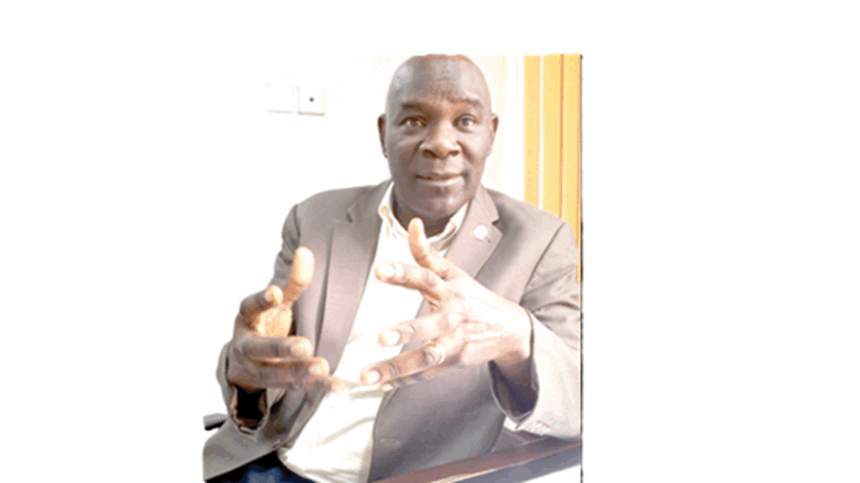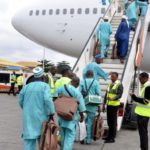Dr. Moses Ogunleye, the Managing Director, MOA Planners Limited and former President, Association of Town Planning Consultants of Nigeria is the lead consultant for the Ibeju-Lekki Model City Plan in Lagos State. In this interview with DAYO AYEYEMI,he speaks on the model city plan, its functionality and areas of focus to position Ibeju-Lekki as the best destination for investment in Africa.
What is the essence of a Model City Plan?
If you have a town, city or any urban area, even any community, and there is no development plan, that town cannot grow very well. So a development plan, it could be town plan, district plan, community plan, master plan, even layout, is to guide the growth of that community. You know that city or town has a direction of growth, and the plan will make provisions for today, tomorrow or future so that the city can grow efficiently. You know where the infrastructure will be; provisions will be made for roads, water supply and power supply, among other things you will know where to locate virtually everything. Indeed, areas where you think you should reserve, you could have area of no development, you could have area for conservation. So if you have any town or any city that doesn’t have a development plan, even its economic development will be affected negatively. It means people can just come and do whatever they like. That is the value of a development plan.
If you say you want to have investors, where do you put them? All developments are land-based. Where will you put those investors? Whatever they want to do, they will find a location for land. If you want your infrastructure to be expanded in the next 20 years, the number of schools that you have now will not be adequate. Even if you want to go vertical, that plan will have said we need more schools, we need 60 or 100 schools and this is where the 100 schools should be. Out of the 100 schools that we need, the existing schools, we have land, we can expand, we can do that.
That is what a development plan of that nature will look like.
How will the ongoing Ibeju-Lekki Model City Plan address the seemingly existing physical development within the axis?
In fact, the Ibeju-Lekki Model City Plan has 20 per cent of the area as swamp and water bodies, so less than 10 percent is built.
So we have a big chunk of land that has not been built. What we are doing now is to integrate that Model City with other major sub-regions and to make sure that they are properly integrated. Some developments have been up there.
For instance, you have the Lekki Free Trade Zone within the Model City; you have the Dangote Refinery within the Model City; and you have the Deep Seaport within the Model City. So what we have done is to make sure other developments that will come will take advantage of these three anchor economic activities. The Lekki Free Trade Zone, the Dangote Refinery, and the Deep Seaport. So we are looking at how development will be activated by these four anchor activities. And we look beyond that. If you have a free trade zone as big as it is, we are also saying let us have other areas for small and medium enterprises. And they are in different parts of the city. So each of those developments, we refer to them as growth centres. They are to activate growth in their various areas.
One of our visions is to make the place more of a work area so that people can come work and go back. A large percentage of the workers are encouraged to live outside the city.
You have the Lekki Master Plan. They are also making provision for that. But the way we plan, if I decide to live in a part of the Model City, before you know you are between Ijebu -Ode and Epe, then you are in the city.
That’s part of what we are making provision for. For the alternative transport facilities and modes, you can use water, you can use the road, you can use rail for the intercity transportation system.
How is the Model City Plan going to address the existing indiscriminate developments by estate developers in Ibeju-Lekki?
Well, it is true that there are so many private estate developers and private investors moving into the place. We saw a lot of land supposedly bought. Some of them are even in acquisition. And we saw a lot of notice boards or billboards saying, we have these estates, we are promoting these estates, You see, they are partners or whatever. We accept the fact that as of today, there is no public sector housing development in the entire city.
So it is the private sector that will drive it. What we have done in the plan is to assume, is to make provision for. On housing, we did a classification that says the next five years or next 10 years, this is what should happen. So we are making the private sector group to play a greater role in housing delivery in that place.
If anybody has invested substantially before, and for instance, two of such investments were captured in the plan, but they need to resolve their legal state so that what we proposed can work for them. There are many others, who are prospecting, who didn’t consider our plan before they started their work.
So a few of such developments have been integrated in the plan. For some we are not able to integrate.
What will happen to those developments you are not able to integrate in the course of implementing this plan?
There are lands that can be used for other things, but it may not be for residential per-see. But generally, most of the built-up areas and the land adjoining them, we have classified them in a way that if you want to do private estate development, if you want to be an investor, you can still be accommodated. There won’t be any major loss. The only problem they may have ultimately is that some new roads will come up. It may run through or it may also affect their investment in a way. So that means they have to redo or represent their plan for government to approve. Ibeju-Lekki Model City plan is a higher order plan; within you are supposed to have some lower order plans. So theirs will now be a lower order plan that will make the plan to work effectively.
If you are to advise developers now, maybe new developers who wish to invest in Ibeju-Lekki, what would be your advice to them?
They should wait a bit more. Maybe they should wait for the next three, four months, before they commit their resources. For instance, at the public meeting, at the public presentation, the two local government councils made an announcement that the government should give them additional weeks. They’re still giving some opinions.
What are the strategies for the plan’s implementation?
What we have planned is to say that implementation will be a multi-stakeholder implementation strategy. Many stakeholders are involved. For instance, for Lagos state government alone, you have about 24 actors. You also have Federal Government as an actor, as a key stakeholder. You also have some private sector organisations. Some companies are involved in infrastructure. So all of them are involved. And what we have also done is to categorise the project or the programme that will take place into four phases. The first five years, the next five years, five years, the 20 years. In doing that, we also have what we call quick wins project – what government should do within the first two years, the next three years. So we have also classified them in that regard.
If all the parties are committed, the plan will be a worthwhile implementation. What we will do is that the union will wait untill we conclude. For instance, we said somewhere that all the land that we have said should be for major infrastructure, government should just go and do a survey there. Survey them and make sure they are on that purpose. So that is where the Office of Surveyor-General will be key. We gave some to transportation; we said some jetties should be created. So that is where the Ministry of Transport will also be key. I also am aware that the Commissioner of Physical Planning is also concerned about the implementation. So I think there is a new department just created to monitor implementation. So we have roles for them and that’s why all the ministries , agencies and department are coming in.
What roles will technology play in the implementation of the model city plan?
We noticed, we observed, and we agreed that ICT is very key. You stay in your office, you do meetings with other people, all around the world, not only Nigeria.
Your journey is reduced for safety and security. With better technology, you can monitor, you can prevent disaster. So we also recognise that. For example, I’m saying there should be technology hubs, new innovations. There are two or three technology hubs.
So we believe technology should be able to play a role. If you have a data centre, if you have a strong high-security facility, technology will drive those ones. We have what we call utility centres also, where you can locate some of these facilities that will drive the technology development of the area.
What are the things needed to reverse the degeneration of Nigerian cities?
I’m loaded with questions, but let me put it this way. Generally, I don’t see any of our cities, let’s even say the capital cities growing efficiently. Less than 30 per cent of them, of those cities, have a development plan. I repeat, less than 30 per cent of those major towns or major settlements have a development plan. That’s a challenge.
For those that even have, the implementation is also weak. You can have a plan, a master plan, and the government is not committed to implementing it. There’s a master plan in Ibadan, with some supports from the World Bank.
The government is not committed to implementing it. I think the plan was done in 2019. So we’re already six years into the 20-year development plan. Government is the one that has the enforcement power. Every key player should be allowed to play their role very well. A city is like a human being. As you are growing, you need to maintain yourself, have your bath, shave your head. So we’re not taking care of the city very well. Unfortunately, the largest population is in the city.
Every year, I did a study looking at what government is allocating to physical planning. Even Lagos, that we think is doing better allocated 3.5 per cent of its budget to physical planning between 2019 and 2023. I carried out the findings across the geopolitical region. Lagos, I believe, is doing better than all of them.
Between 2019 and 2023, Lagos allocated 1.4 per cent, 1.3 per cent, 1.4 per cent . A year ago, it was 2.1 per cent . So, there should be more regional allocation for physical planning. The political leaders should make sure every settlement has a plan. Government should be committed to building that plan.
Before we carry out any development, there must be plans. So, planning should precede development. The one we have prepared, we should commit to enforcing it.
Recently, the Lagos State Government claimed to have granted 37,000 planning approvals in the last six years. What is your take?
I think the authority could do more. But you know, we have a culture, we still have a system that has not captured all developers. That’s why I don’t agree. I think the culture where people still build without getting permits. I’m sure the application would have been more than that, if more people applied. The development in the state is rapid. It’s still very rapid. The number may look big, but then after a while, I’m sure you have people who are doing more than you have in the previous approval and who are enhancing it or adding to it. It’s still not substantial. It can be more. People with amnesty needed to be reached out to more.
Many complaints centered on high cost of getting plan approval. Many want it as a social service. What do you think?
Let’s just say it’s a service. Whether it’s socioeconomic, it’s a service. Number two, we should also say that the assessment of fees paid by the public to get their approval should not be too high.
I know government has increased this on several occasions in the last ten years. People have complained. Government has the right to increase the revenue to make more revenue. But then, not to the extent that it should look as if that is the primary objective.
Ultimately, it’s to say we want order; we want the city to grow better; we want the town to grow better; we want to have all buildings in the town or cities to have planning approval. I think more importantly, apart from the fact that the cost is high, the duration for procuring the permits should be less. There should be less bottlenecks.
The argument of government is that if you are building five floors, you cannot claim you don’t have money. But that doesn’t mean, after all what you are getting is money for permit, not the cost.
They are not giving you money to build. It is true that some of the costs have to be looked at, but more importantly, what stakeholders want is a permit process that will not be long to make some of these conditions get approval seamlessly with less problem in short time.
So we want a more efficient system so that within a shorter time, your permit is ready. I know the planning office also has its own challenge.
WATCH TOP VIDEOS FROM NIGERIAN TRIBUNE TV
- Let’s Talk About SELF-AWARENESS
- Is Your Confidence Mistaken for Pride? Let’s talk about it
- Is Etiquette About Perfection…Or Just Not Being Rude?
- Top Psychologist Reveal 3 Signs You’re Struggling With Imposter Syndrome
- Do You Pick Up Work-Related Calls at Midnight or Never? Let’s Talk About Boundaries






